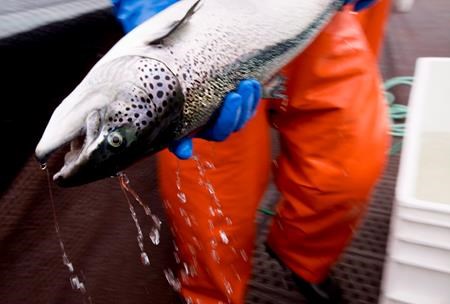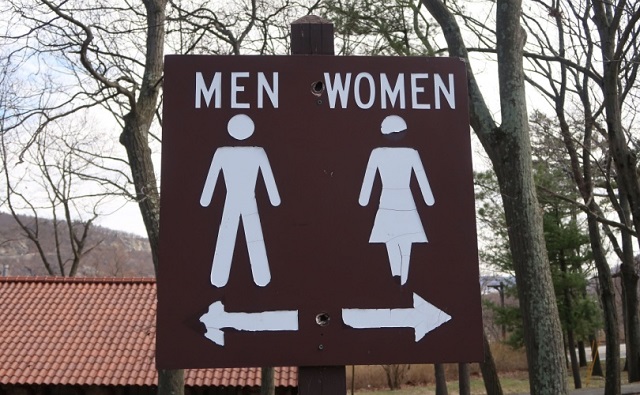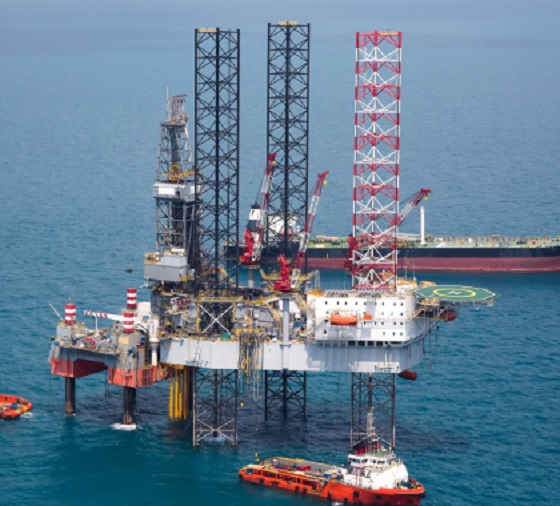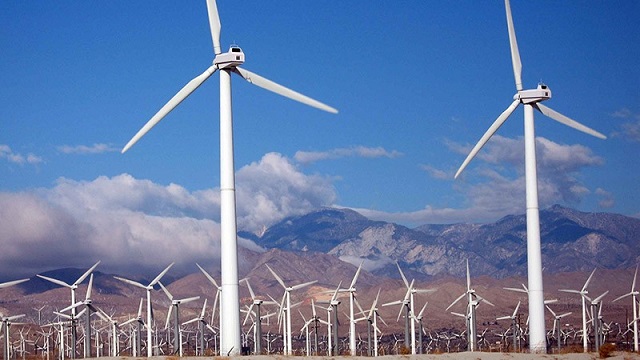Alberta
Global salmon farm company with B.C. ties backs land-based aquaculture in Japan

VICTORIA — The backing of a land-based salmon farm in Japan by a global company with ties to ocean fish farms in British Columbia has Indigenous and conservation groups calling on the federal government to accelerate its transition away from open-net farms.
The international tide in aquaculture is shifting toward land-based salmon farms, and the sooner Canada gets on board the better for the protection of threatened wild salmon and the future of aquaculture in B.C., say representatives of the 120-member B.C. First Nation Wild Salmon Alliance and non-profit group Wild Salmon Forever/Wild First.
“Canada really has to decide at this point if it wants wild Pacific salmon or if it wants this dirty, harmful industry. It can’t have both,” Tony Allard, founder of Wild Salmon Forever/Wild First, said in an interview. “That’s how I see it. It’s hard to talk your way out of it.”
Open-net fish farms off B.C.’s coast are a flashpoint, with environmental groups and some Indigenous nations saying the farms transfer disease to wild salmon, while the industry and some local politicians say thousands of jobs are threatened if operations are phased out.
Earlier this month, federal Fisheries Minister Joyce Murray announced plans to extend a consultation period for a transition plan to shift away from open-net salmon farms in B.C. by 2025.
Murray announced last February the government would not renew licences for 15 open-net Atlantic salmon farms around B.C.’s Discovery Islands.
This month, she said consultations for 79 other open-net farms will now continue through the summer, with a transition plan decision coming at an unannounced date.
“They must also realize that this is where the industry’s going,” Bob Chamberlin, First Nation Wild Salmon Alliance spokesman, said in an interview. “No one logs like they used to. No one mines like they used to. Everything evolves and it’s time for this industry to do the same.”
He said when he visited Norway more than a decade ago, salmon farm industry officials there said they operate open-net fish farms in B.C. because they are permitted by the government.
“That was the last time I went to Norway to speak to them,” he said. “I realized that the fight was at home.”
Chamberlin said he’s now more convinced than ever about having salmon farms removed from B.C. waters after learning about the land-based project near Tokyo being built with financial backing from the Norwegian company, Grieg Group, which has investment ties to Grieg Seafood of Campbell River.
Grieg Seafood operates a fish hatchery, 22 ocean salmon farms and employs about 200 people in B.C.
Amy Jonsson, Grieg Seafood communications director, said in a statement that Grieg Seafood of Campbell River did not invest in the Norwegian-based Proximar Seafood land-based salmon farm project in Japan.
She said Grieg Group of Norway is Greig Seafood’s main investor and a Proximar Seafood shareholder.
A Proximar Seafood spokesman could not be reached for comment about the estimated $88 million land-based salmon farm project, but the company’s website said the farm is located about an hour’s drive from Tokyo near Mount Fuji and will produce up to 5,300 tonnes of farmed Atlantic salmon annually.
Jonsson said transitioning the industry from open-net farms to land-based remains challenging on several fronts, technically and financially.
“To farm the entire production cycle on land has not yet been proven viable at a commercial scale,” she said in the statement. “Developing the technology and competence is the first challenge that needs to be solved.”
Jonsson also said once land-based technology does become viable, facilities will likely be located closer to their markets, which could result in job losses in rural communities.
The B.C. Salmon Farmer’s Association, which represents about 95 per cent of the province’s fish farm producers, said an economic analysis commissioned by the provincial government concluded shifting to land-based salmon farming could cost up to $2.2 billion, and production and profit of the product was elusive.
“To move the entire sector on land isn’t a realistic option, nor is it required to protect wild salmon,” said association president Brian Kingzett in a statement last February. “The federal government’s numerous science assessments have confirmed Atlantic salmon farms pose no more than a minimal risk to wild salmon abundance and diversity under the current fish health management practices.”
Kingzett was not available for further comment.
Allard, who operates a private investment company in West Vancouver, said he supports salmon farming, but not open-net ocean farms.
“I’m a capitalist,” he said. “I can see there’s a need there and a business there, but you can’t base your business on polluting for free and harming an iconic keystone species. The longer we dither on embracing what’s now proven technology and play to our advantages, the more we’re likely to squander our first-mover advantage on the Pacific coast.”
A statement from Murray’s office at Fisheries and Oceans Canada, said “Canada can be a global leader in sustainable aquaculture, while also making sure we protect keystone species like wild Pacific salmon.”
This report by The Canadian Press was first published June 15, 2023.
Dirk Meissner, The Canadian Press
Alberta
Alberta government should eliminate corporate welfare to generate benefits for Albertans

From the Fraser Institute
By Spencer Gudewill and Tegan Hill
Last November, Premier Danielle Smith announced that her government will give up to $1.8 billion in subsidies to Dow Chemicals, which plans to expand a petrochemical project northeast of Edmonton. In other words, $1.8 billion in corporate welfare.
And this is just one example of corporate welfare paid for by Albertans.
According to a recent study published by the Fraser Institute, from 2007 to 2021, the latest year of available data, the Alberta government spent $31.0 billion (inflation-adjusted) on subsidies (a.k.a. corporate welfare) to select firms and businesses, purportedly to help Albertans. And this number excludes other forms of government handouts such as loan guarantees, direct investment and regulatory or tax privileges for particular firms and industries. So the total cost of corporate welfare in Alberta is likely much higher.
Why should Albertans care?
First off, there’s little evidence that corporate welfare generates widespread economic growth or jobs. In fact, evidence suggests the contrary—that subsidies result in a net loss to the economy by shifting resources to less productive sectors or locations (what economists call the “substitution effect”) and/or by keeping businesses alive that are otherwise economically unviable (i.e. “zombie companies”). This misallocation of resources leads to a less efficient, less productive and less prosperous Alberta.
And there are other costs to corporate welfare.
For example, between 2007 and 2019 (the latest year of pre-COVID data), every year on average the Alberta government spent 35 cents (out of every dollar of business income tax revenue it collected) on corporate welfare. Given that workers bear the burden of more than half of any business income tax indirectly through lower wages, if the government reduced business income taxes rather than spend money on corporate welfare, workers could benefit.
Moreover, Premier Smith failed in last month’s provincial budget to provide promised personal income tax relief and create a lower tax bracket for incomes below $60,000 to provide $760 in annual savings for Albertans (on average). But in 2019, after adjusting for inflation, the Alberta government spent $2.4 billion on corporate welfare—equivalent to $1,034 per tax filer. Clearly, instead of subsidizing select businesses, the Smith government could have kept its promise to lower personal income taxes.
Finally, there’s the Heritage Fund, which the Alberta government created almost 50 years ago to save a share of the province’s resource wealth for the future.
In her 2024 budget, Premier Smith earmarked $2.0 billion for the Heritage Fund this fiscal year—almost the exact amount spent on corporate welfare each year (on average) between 2007 and 2019. Put another way, the Alberta government could save twice as much in the Heritage Fund in 2024/25 if it ended corporate welfare, which would help Premier Smith keep her promise to build up the Heritage Fund to between $250 billion and $400 billion by 2050.
By eliminating corporate welfare, the Smith government can create fiscal room to reduce personal and business income taxes, or save more in the Heritage Fund. Any of these options will benefit Albertans far more than wasteful billion-dollar subsidies to favoured firms.
Authors:
Alberta
Official statement from Premier Danielle Smith and Energy Minister Brian Jean on the start-up of the Trans Mountain Pipeline

-

 Energy2 days ago
Energy2 days agoNet Zero’s days are numbered? Why Europeans are souring on the climate agenda
-

 Opinion2 days ago
Opinion2 days agoQuebec’s ban on gender-neutral bathrooms in schools is good news
-

 Energy2 days ago
Energy2 days agoBiden Has Taken More Than 200 Actions Against Domestic Oil, New Report Says
-

 Opinion2 days ago
Opinion2 days agoMisleading polls may produce more damaging federal policies
-

 International1 day ago
International1 day agoTrump campaign says he will pardon Jan. 6 prisoners on ‘case-by-case basis’ if re-elected
-

 conflict1 day ago
conflict1 day agoNYPD says protesters had weapons, gas masks and ‘Death to America!’ pamphlets
-

 illegal immigration19 hours ago
illegal immigration19 hours agoBiden’s DOJ Threatens To Sue Another State For Enforcing Immigration Law
-

 Economy17 hours ago
Economy17 hours ago‘Gambling With The Grid’: New Data Highlights Achilles’ Heel Of One Of Biden’s Favorite Green Power Sources










